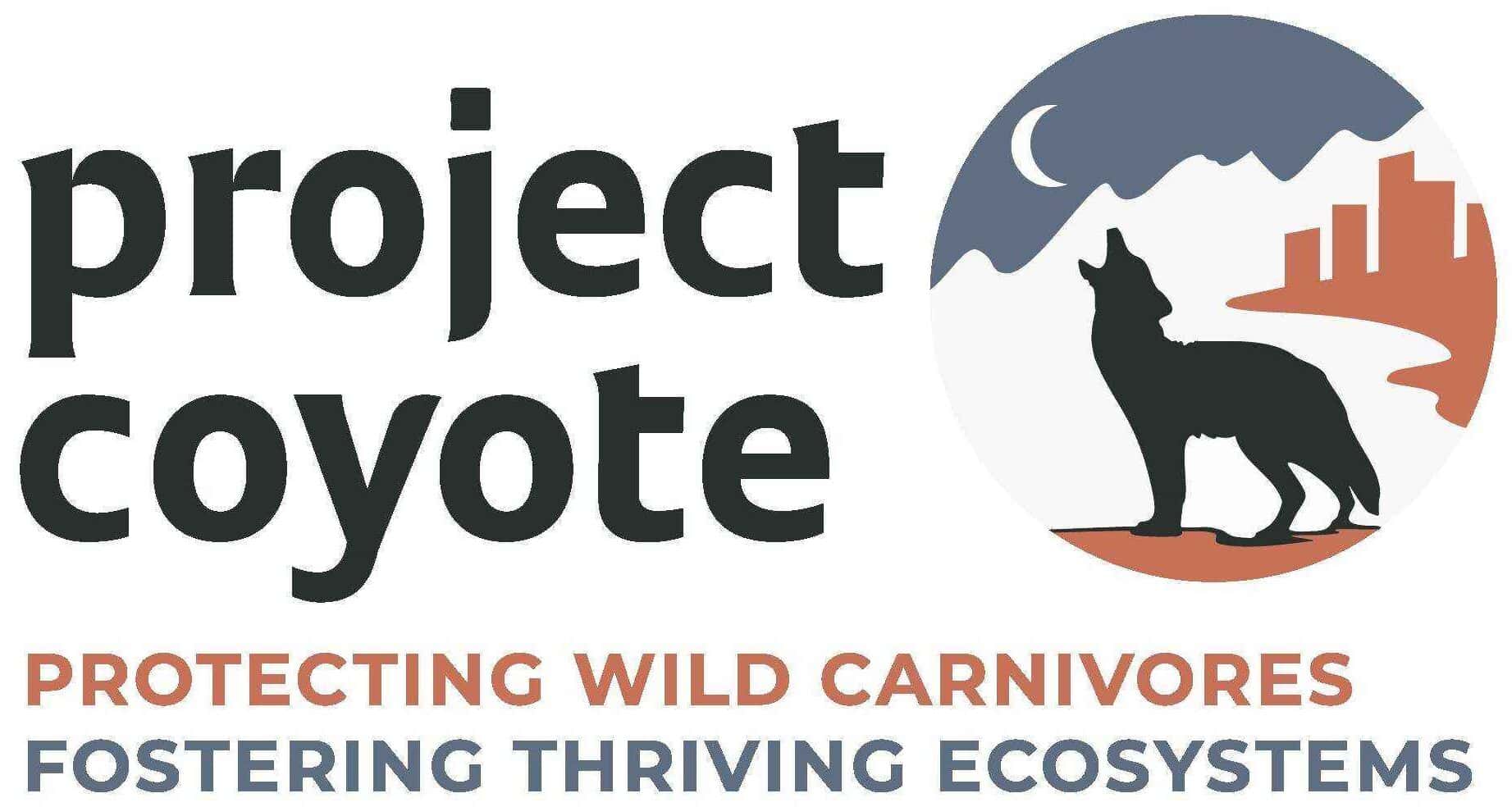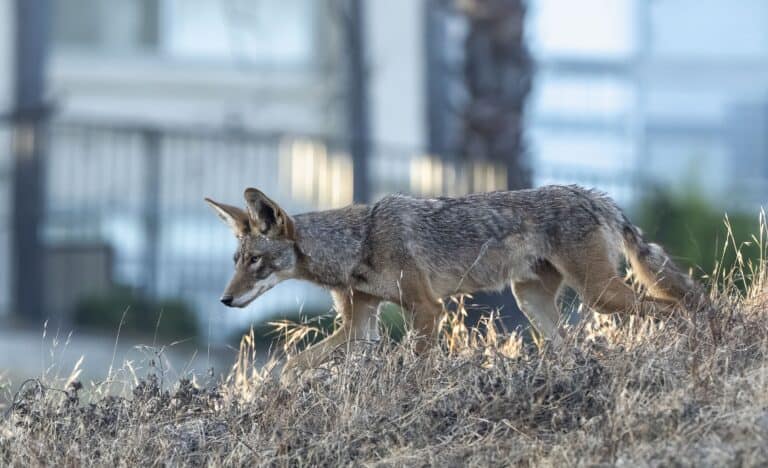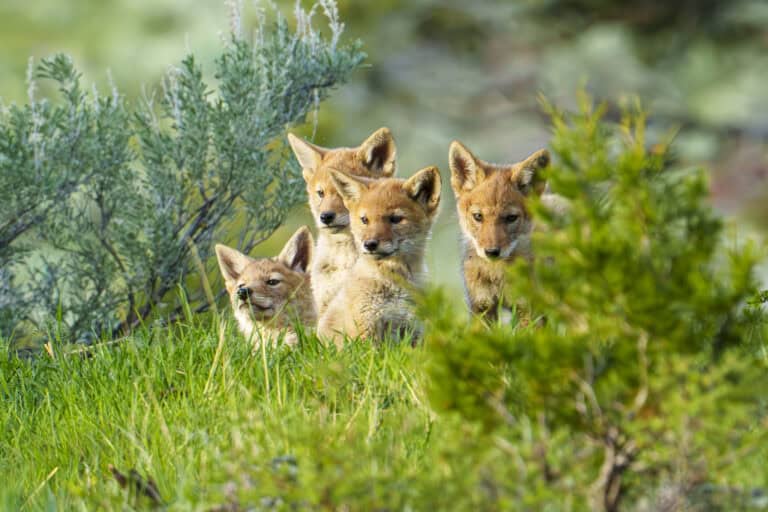FOR IMMEDIATE RELEASE: April 14, 2022
Contact: Dave Parsons, The Rewilding Institute & Project Coyote and Michelle Lute, PhD, Project Coyote
Plan fails to adequately address the illegal killings of highly endangered Mexican gray wolves
ALBUQUERQUE, N.M. —
Today, the U.S. Fish and Wildlife Service (USFWS) released a revised Mexican Gray Wolf Recovery Plan that once again fails to adequately address the most immediate threat facing the critical recovery needs of the most imperiled wolf subspecies in the world: illegal killings.
The revised plan comes in response to a court order from October 2021, when a federal district court judge ruled that the USFWS failed to include specific actions addressing human-caused mortality of Mexican gray wolves.
Currently, human-caused mortality is the leading cause of death for the Mexican gray wolf population and accounts for more than 70% of mortalities. Illegal poaching remains the biggest hindrance to species’ recovery. Recent research indicates that human-caused mortality, especially through poaching during times of reduced protection, has been consistently mismeasured and significantly underestimated.
The revised plan mentions increasing law enforcement presence to address poaching but fails to detail how the USFWS plans to increase prosecution of poaching incidents. Prosecution of poachers has been hindered by the Justice Department’s McKittrick policy which requires the government to prove the defendant knew the biological identity of the animal they were killing. Thus the “I thought it was a coyote” defense remains an effective strategy for avoiding prosecution as coyote hunting remains legal year-round throughout the Mexican gray wolf range. The revised plan also still allows for the lethal control of wolves in response to conflict, which further incentivizes and increases poaching.
“Proposed revisions are a tepid response to the serious impact of human-caused mortality, especially cryptic poaching, which equals or exceeds known poaching.” said Dave Parsons, former Mexican wolf recovery coordinator for the Fish and Wildlife Service, science advisor for Project Coyote and carnivore conservation biologist for The Rewilding Institute. “More drastic measures are needed to ensure the recovery and long-term survival of the critically endangered Lobos. These include more aggressive prosecution of wolf killers; the implementation of policies to restrict the killing of coyotes in the wolf recovery area, especially during hunting seasons for other species; and the inclusion of estimates of cryptic poaching in models for estimating human-caused mortality.”
Recovery plans are required by the Endangered Species Act to serve as road maps to species recovery. They outline specific actions that USFWS will follow to ensure a species recovers to restored and secured self-sustaining wild populations.
The Mexican gray wolf recovery plan was originally issued in 1982 and the first revision was adopted in 2017. The 2017 revision came in response to the settlement of a lawsuit filed by several wildlife organizations requiring USFWS to revise the 1982 recovery plan. The revision released today of the 2017 plan, forced by a court order resulting from yet another lawsuit, still remains insufficient to ensure full recovery of these critically imperiled wolves.
“Ensuring that wolves and people can coexist is an essential part of long-term success for Mexican gray wolf recovery,” said Renee Seacor, carnivore conservation advocate for Project Coyote and the Rewilding Institute. “USFWS should reinforce the strictest protections for Mexican gray wolves. Today’s plan does little to deter poachers who know that prosecution is little to none in these cases. In order to address poaching head-on, we need active prosecution of all poaching incidents.”
A 30-day comment period for the Recovery Plan commences today and will close on May 16, 2022. Those interested in submitting comments may use the talking points below.
Background on Mexican Gray Wolves:
Mexican gray wolves, or lobos, are one of the rarest subspecies of gray wolf in the U.S. They were listed under the Endangered Species Act in 1976, but recovery efforts have suffered without implementation of recovery actions recommended by wildlife advocates.
Mexican wolves are at tremendous risk due to their small population size, limited gene pool, threats from human-caused mortality, including trapping, and illegal killings. As of the last official count in 2021, there are 196 known Mexican gray wolves in the wild in the U.S, with only a 38% pup survival rate.
###
Project Coyote, a fiscally-sponsored project of Earth Island Institute, is a North American coalition of scientists, educators, conservationists, and community leaders promoting compassionate conservation and coexistence between humans and wildlife through education, science, and advocacy.
TAKE ACTION
A 30-day comment period for the Recovery Plan commences today and will close on May 16, 2022. Those interested in submitting comments may use the talking points below. Please personalize!
- USFWS should reinforce the strictest Endangered Species Act protections for Mexican gray wolves to decrease the potential of illegal killings.
- Policies that loosen Endangered Species Act protections for Mexican gray wolves lead to substantial increases in illegal poaching of the species.
- USFWS should not only increase enforcement of poaching by hiring more Conservation Law Enforcement Officers but increase prosecution of poaching incidents.
- USFWS should increase its investigation and enforcement resources and address poaching head-on.
- Prosecution of poachers has been hindered by the Justice Department’s McKittrick policy which requires the government to prove the defendant knew the biological identity of the animal they were killing, permitting the “I thought it was a coyote” defense to remain an effective strategy for avoiding prosecution.
- Oregon has recently hired four enforcement officers and an anti-poaching prosecutor dedicated solely to locating, investigating, and prosecuting poachers in the state. These law enforcement roles provide local counties with the resources to prosecute poachers.
- USFWS should focus its efforts solely on the exclusive promotion of non-lethal approaches to prevent wolf-livestock conflicts.
- Proactive non-lethal approaches to mitigating conflict with domestic animals are scientifically proven to be the most effective strategies to decrease conflict.
- Policies that allow for the lethal control of wolves will incentivize poaching and fail to prevent conflict.
- USFWS should increase monitoring and enforcement of poaching during hunting seasons for other mammals.
- Poaching of wolves increases during hunting seasons for other mammals, therefore, requiring more enforcement of poaching during those seasons.
- Studies suggest hunting seasons are the deadliest of all for wolves. Increased patrolling and monitoring by enforcement officers would mitigate poaching and increase its detection after it occurs.
- USFWS should collaborate with the US Forest Service and the AZ and NM wildlife agencies to ban the killing of coyotes during open hunting seasons.
- This approach was implemented in the Great Lakes Region for about 30 years to mitigate illegal killing.
- Banning coyote killing year-round throughout the Mexican wolf recovery area would be even more effective.
- Mexican wolves and coyotes are incredibly difficult to distinguish in the field, hence widespread coyote killing may lead to accidental Mexican wolf killing or deliberate, opportunistic illegal killing (concealed by coyote hunters).






